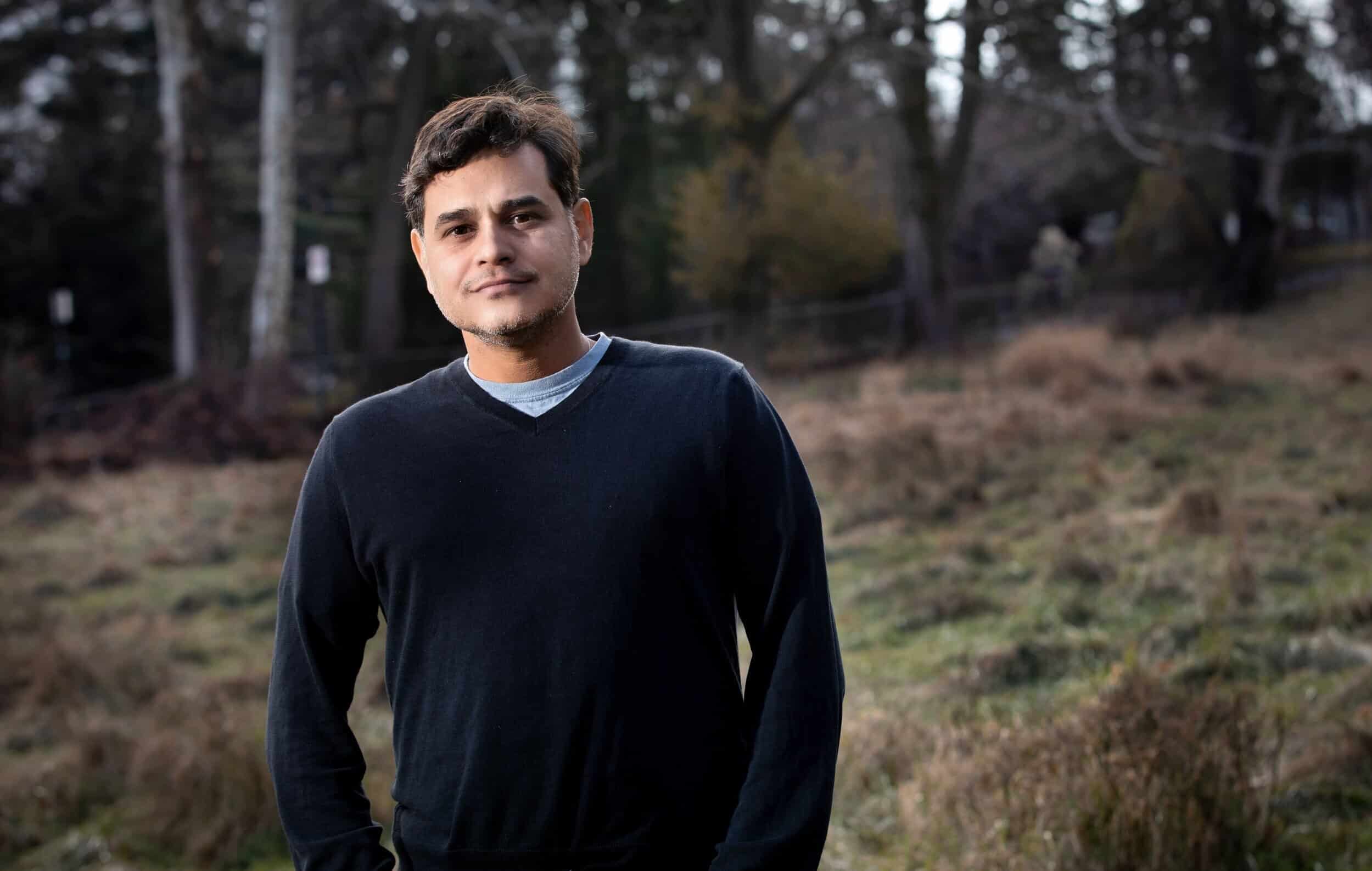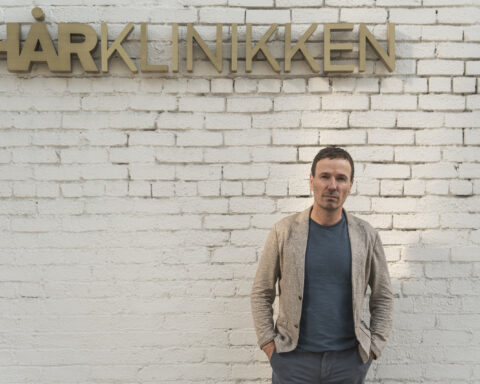Shaun Nanavati’s life and career have straddled eastern and western culture and science. Raised in America by Indian parents, he has graduate degrees in both eastern and western inner sciences. He is on the faculty at the Nalanda Institute for Contemplative Science, New York, and previously taught Cognitive Science at CUNY. Now, Shaun is using all that experience, and particularly his time spent treating children diagnosed with ADHD, for his new venture, the AQ app. The app is launching this month on iPhone and iWatch and measures the users’ pulse in different mental states to evaluate their attention using a new metric, Attention Quotient, and then offers personalized guidance and training to those seeking to improve their focus.
Like most kids who are asked to visit a psychologist, the schoolboy was a bit apprehensive when he walked into my office. He had been referred by his teacher for a diagnosis of ADHD, even though he had always been one of the smartest kids in the class. And during the intelligence tests, it was certainly evident to me that this was one of the brightest kids I had ever met.
His mother had raised him alone, while he fantasized about his father, most likely an international spy. Recently, he had taken to playing video games more often, dropping out of the chess club. His marks in sixth-grade math began to falter, even though he was smart enough to be in the top one percentile of all kids his age.
To me, this was a simple problem of adolescence. Kids gravitate towards those things they want to do, instead of the adults around them. Pretty normal for a teenager, I thought. The drop in grades was obviously because he was bored, the teachers were not providing material to match his intelligence and skill.
The supervising psychologist interviewed his mother, and then called the teacher. It is interesting how most teachers do not consider the possibility that a lesson may be too boring for a child. Somehow, the inability to pay attention to a lesson is usually painted as the student’s fault. The single mother was also concerned, and her anxiety in the interview was evident.
Since I was conducting the neuropsychological testing, I looked forward to hearing the schoolboy’s description of events. However, this never came. You see, for a child to be diagnosed with ADHD, they do not even need to be consulted. If a certain set of symptoms are described by the adults, then the diagnosis is established.

The AQ app
Before the coronavirus pandemic, ADHD had been the only major pediatric epidemic of the last decade. A staggering number of kids are being diagnosed with a deficit of attention. Yet ask most adults, and they will probably not be able to define attention. Even more alarming, neither can most psychiatrists, as there is a wide spectrum of definitions and interpretations.
This young man was prescribed a standard dose of an ADHD medication. Over time, he developed an alarming set of symptoms, including nausea, acne and eventually, internal bleeding. You may be shocked to learn that the ADHD medications prescribed to our children may not have the effects we intend. Intelligence often requires long-term, patient reflection on an idea. The type of attention these drugs improve requires more manual, rote, and repetitive activities. And while the medications work for some, the number is nowhere near the efficacy expected from a medical intervention.
This moment with that boy was an ‘a-ha moment’ for me. Without an objective measure of attention, how can we reliably recommend certain interventions? How do we know if they work? Even in my own life, if I am practicing meditation of mindfulness, I wonder if it is working.
If you medicate or meditate, the underlying question is the same: Is my attention improving or not? This question drove me. And I believe it to be the most important question facing our children and education system today.
At the very core of my identity is the lifelong search between East and West, and also science and spirituality, to find the common ground between those two spaces.
My parents are from India and I spent my summers there, though I grew up in southern New Jersey. My mom maintained the religious traditions of her mother, even in the US, but my dad was a scientist and atheist. They agreed to disagree at times, and this space for a healthy dialogue drove my interests later in life. As I grow older, I hope I can become a bridge between these two cultures.
While western sciences have developed incredible technologies in medicine, I believe they can reach their full potential when some of the deeper philosophic concepts concerning the mind are understood more deeply. From my experience, I have found that attention is a lot more important than intelligence when it comes to finding success in life. I’ve seen a lot of very intelligent people make disastrous mistakes when they are distracted.
Our attention determines the range of our actions. And the quality of our attention often impacts the quality of our everyday experience. This is why I believe this needs to be measured carefully in a way that can serve any individual in the world, and be independent of the biases of authority and culture. With better measurements, we’d be able to provide more precise interventions and make fewer errors.

The AQ app
Our company, Mindwell Labs, is introducing this new AQ metric for people to measure their mental wellbeing. The idea was to create a quotient much like you have for IQ, your Intelligence Quotient, to determine tangible, real-world benefits from your mental practices.
The basic idea is an ancient one, we’re just doing it in a new way – taking your pulse and then giving a meditation or skill recommendation, specifically for you.
The app carries out a four-minute test, taking your pulse at two-minute intervals with your eyes open and then eyes closed. And then it calculates different statistical qualities of your heart rate in relation to others taking the test around the world. After the heart rate measurement, it is expressed into five sub-components of attention: ‘Awareness’ is the quality of your heart rate with your eyes open. ‘Rest’ is based on your heart rate with your eyes closed. ‘Anxiety’ has to do with the rate of its change from the eyes open to eyes closed condition. ‘Introspection’ is how much your heart rates slows when the eyes are closed. ‘Somatics’ is your ability to sense what your heart rate is, which we ask you as part of the test.
Once you take that test, you can improve where you’re weakest. So, if you haven’t been sleeping well recently, we can work on rest. It has an algorithm that, based on your AQ, will give you specific classes and psychological modalities based on what you need. So we’ll offer classes on sleep hygiene, dreaming, wind-down rituals, dream journaling, and other items that will help you sleep better. Once your sleep is established, the app will give you a different type of class. The next day, it might detect you’re anxious, and then give you some classes on anxiety.
If you go to traditional psychologists, you have to choose one type or another. You might go to a meditation expert, or a CBT therapist, or a psychoanalyst. So that means you need to have five or six different people on call and would cost thousands of dollars. So we’ve brought all these modalities together, and we’re giving exactly the modality you want when you need it, at a very affordable cost, $5-a-month.
I think that personalized medicine is the future. Why would you take an anxiety drug every day if you’re not anxious? So instead of taking your pulse once a year, you have a doctor on your wrist every day and night taking your pulse, and you have a medical service that allows real personalization.
The truth is, there are different things that happen in the environment that cause your attention to be up or down. So I think the key is to understand what’s happening in your environment and find the cause of your attention’s fluctuation.
The idea of measuring your health through your pulse has been around since ancient times. A doctor often takes pulse in a variety of cultures to figure out what is happening in your body. The pulse can give us an incredible amount of information. The heart sometimes confesses that which words cannot.
The AQ app will be available at the app store in March 2020. You can sign up for more information here.











